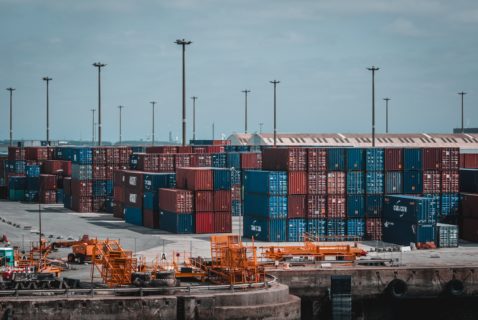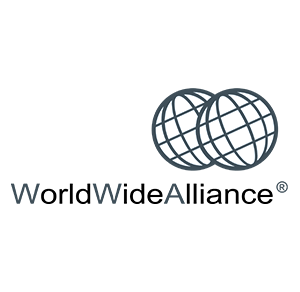Finding the perfect consolidated provider is a key factor to a successful supply chain. That’s why it is important to pause for a moment and think what is best for you before selecting your new LCL provider.
So let’s start from the beginning.
Why choose an LCL provider?
LCL (from Less than Container Load) also known as consolidated or groupage, refers to the method of transportation of containerized cargo where multiple shippers’ goods (usually on the small size) are packed together in the same container.
The biggest advantage of LCL is an economic one. Sharing a container with other exporters and importers means you can share costs too, which makes LCL cheaper than FCL (Full Container Load), when you would pay for the whole container even if you just used a fraction of it.
Nowadays LCL is a mode of transport used around the world that can also be used together with FCL or air freight allowing clients to optimize their logistics and supply chain. Then, how do you choose the best LCL provider for your needs?
Tips to chose the best consolidated shipping provider
Consolidation companies, also called NVOCC, are logistics companies that offer LCL services.
There are two types of consolidation companies, neutral and not neutral, depending on which kind of clients they have. If their clients are solely from the logistics industry, like freight forwarders, then they are a neutral consolidation company, if they don’t discriminate between logistics professionals and final clients, then they are not neutral consolidators.
Regardless of the consolidation company you are looking for, these are the main factors to bear in mind when choosing your LCL provider.
Adapted to your cargo needs
The first step is makeing sure the company can manage your cargo. That means, what kind of goods are you going to ship?
That is especially important with dangerous cargo or potentially problematic, like alcohol or tobacco, because these kind of goods need special licenses or even specific transport services. Make sure the LCL provider you select can work with your cargo with all guarantees.
Wide range of services
The second factor to consider is the range of your operations. Are they going to be local, regional, international? Be that as it may you should choose someone who can offer you the LCL routes you need.
Especially when speaking of international transport, it’s easy for a consolidator to offer services for a busy route, with lots of traffic and volume, but this can come short if you need to go further inland, for example, or if you are interested in less popular routes. Or you can be interested in door to door services, which cover all steps of the supply chain.
Asses all the routes provided by all the companies and chose the one that’s best for you. And don’t forget your possible future needs!
Service reliability
Like with everything else, making sure words translate into actions is another key factor to have in mind when choosing your groupage provider. In this case it’s in your best interest to make sure your potential provider keeps to the transit times and follows through the scheduled sailings as well as a complete pre-shipping service (pick-ups, customs offices, etc.) and updated information of all your shipments.
Direct vs transshipment
To make sure the transit time announced is as close as possible to reality is best to choose direct routes. As we’ve said before in our blog post about differences between direct and indirect routes, the first will always be better as it offers less risk of delays, better prices and minimizes the possibility of the cargo being mishandled or damaged.
Incident management
Nevertheless, you have to remember a consolidator is, like a freight forwarder in a way, an intermediary, just one step in the long supply chain. The consolidation company may not have its own fleet of trucks for the pickups, or it may not have a warehouse to load the containers and it will depend on the shipping company for the actual shipping of the goods. Then the same all over again when the cargo arrives at the final destination. This means that something, at any given moment, can go wrong, be it human error or because of one of the third parties involved in all the process. You can’t really avoid that but you can make sure to choose an LCL provider that will manage all your incidents as best it can. For example, you should look out for the way they deal with the problems for their client, how diligent they are in offering solutions and how transparent they are in giving information about the shipment or the steps to take to solve the problem at hand.
Additional logistics solutions
This last step may not be as essential as the others, but it is very recommended. For the consolidation company to offer the best possible services for their clients, additional logistics solutions can make or break the deal. In this case we are talking about having their own warehouses, normal or customs, licenses to store dangerous goods…

TransGlory, NVOCC with 25 years of experience
A complete LCL transport services is made up by multiple steps, all of them crucial to a successful import or export operation. That’s why TransGlory offers neutral air and maritime consolidation services, as well as having our own warehouse and added value logistics services. We have a strong network of agents around the world to ensure the highest quality of service and security for your cargo and we are part of the World Wide Alliance since 2007.
Our online cargo management tool, my.TransGlory.com, is also one of our strongest assets as you can book your cargo in less than 5 minutes, look for quotations and updated schedules as well as track all your shipments in real time.
Don’t hesitate to contact our team for more information or checking our schedules page to consult all the routes available.













